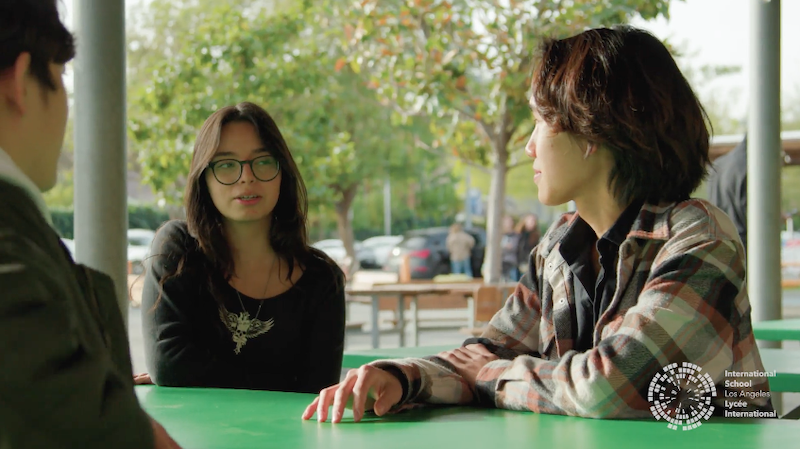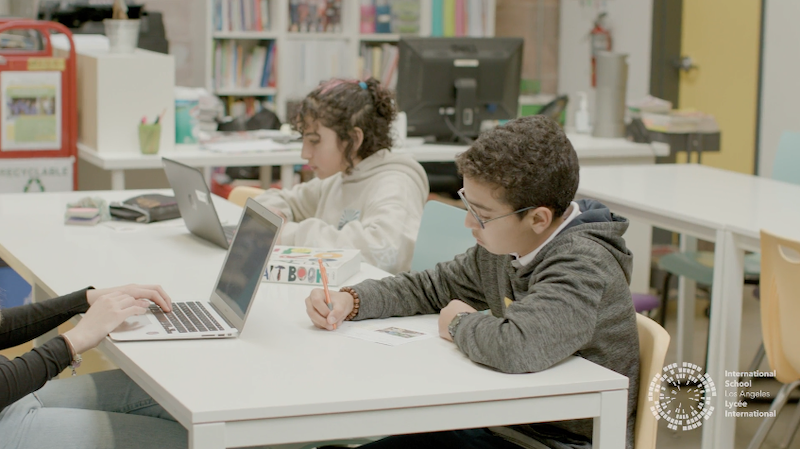Learning a second language in school
Posted on 9th Apr 2024 in School News, International Education, International Schools, Language Learning
Rachael Bogdans, Communications Manager at the International School of Los Angeles, explains why learning a new language can help improve cognitive skills and development.
In January 2023, Head of School Michael Maniska announced that the International School of Los Angeles will be offering new languages in the international high school track starting in the 2023-2024 academic year. Historically known for its French immersion program, the school will be adding Italian and Japanese to the existing offering, which currently includes Spanish. In keeping with LILA’s vision of becoming the premier international school in Los Angeles, these new languages will expand students’ cultural understanding, critical thinking skills, and general interconnectedness.
In conversation with Michael Maniska, the Head of School’s love of intercultural understanding and his background in linguistics come through when he speaks of how “shaping a curriculum around bilingualism celebrates an international perspective.” The school currently educates students from over 65 international backgrounds and 40 language learning backgrounds, emphasizing that students at LILA truly speak and think globally.
Director of Teaching, Learning & Professional Growth, Anneli Harvey, shares similar beliefs and a passion for the study of languages. Ms. Harvey believes that learning and engaging in new languages changes the lives of individuals. In her expert opinion, language goes beyond a linguistic and cultural exchange as she quotes Wittgenstein: “The limits of your language are the limits of your world.”A longtime linguistic expert, she explains that the more languages we engage in, the more we connect with others, ultimately allowing us to become better human beings.
Why Italian and Japanese?
After studying the mission of the school, its community and competitors, and the nature of students’ interests, it was decided that offering two languages at different levels would provide the best challenge for LILA students. Both Italian and Japanese were considered languages of interest in the responses from a Student Voice Session.
From a linguistic perspective, different languages fall into different categories. For example, French, Spanish, and Italian are considered a level one in terms of difficulty, each requiring about 600 hours to become proficient in either language. Japanese, on the other hand, is considered a level five, taking about 1,800 hours to become fluent.
Italian is considered a ‘Romance Language’ or, to linguists, a coding language. Ingrained in European art culture, it is in the same family of languages as French and Spanish, making it particularly attractive to our community. On the other hand, learning the Japanese language pushes for a new space, giving insight into an Asian culture from a global perspective. The school felt it important to provide an Asian language that appealed to students both linguistically and culturally.

Aiden, a current 9th grade student at the International School of Los Angeles, is looking forward to having a different culture highlighted: “Implementing an Asian language into the school is an introduction to Asian cultures.”Indeed, many current students show a great interest in Asian and Japanese topics and art forms such as manga and anime.
Extending this offering of new languages is a win for the students in several other important ways. Benefits include the improvement of cognitive plasticity as it shapes different languages and leads to enhanced cognition, as well as the ability to better understand and embrace self, and others, and how to navigate challenging situations in a complex world. Overall, learning and engaging in new languages helps students connect with others, allowing everyone to become engaged citizens and ultimately more empathetic human beings.
How will it work?
From 2023, students entering the school at the 9th grade international track entry point and beyond will study two languages from a choice of three: French, Italian, and Spanish. In grades 11 and 12, Italian and Japanese will be offered as beginners’ courses to those students who have no prior experience in these languages. The International Baccalaureate’s Language Acquisition requirement provides for Ab-initio study as well.
In LILA’s nurturing environment, students are encouraged to concentrate on their language skills, further allowing them to speak more comfortably with others in the school’s community as well as beyond the school’s four campuses. Pauline, a 10th grade student, mentioned that sometimes her Spanish teacher will challenge students by adding sentences in French. Even outside of the classrooms, verbal exchanges and exercises in other languages between other students, teachers, and supervisors happen each day. It is the philosophy of the International School of Los Angeles and all members of its community that the more our students can better understand and communicate with one another, the more likely our graduates are to become outstanding bilingual critical thinkers and global citizens prepared to thrive in a changing world.
This article first appeared in the 2023/24 edition of John Catt's Guide to International Schools, which you can read here: